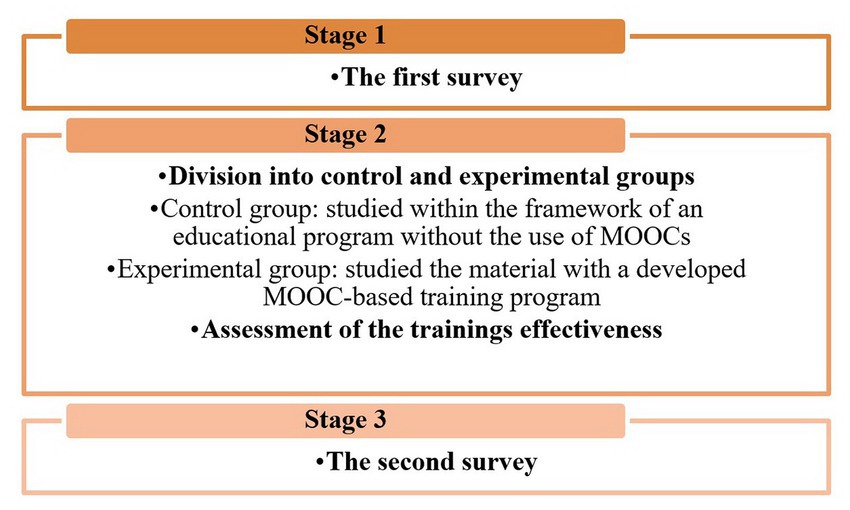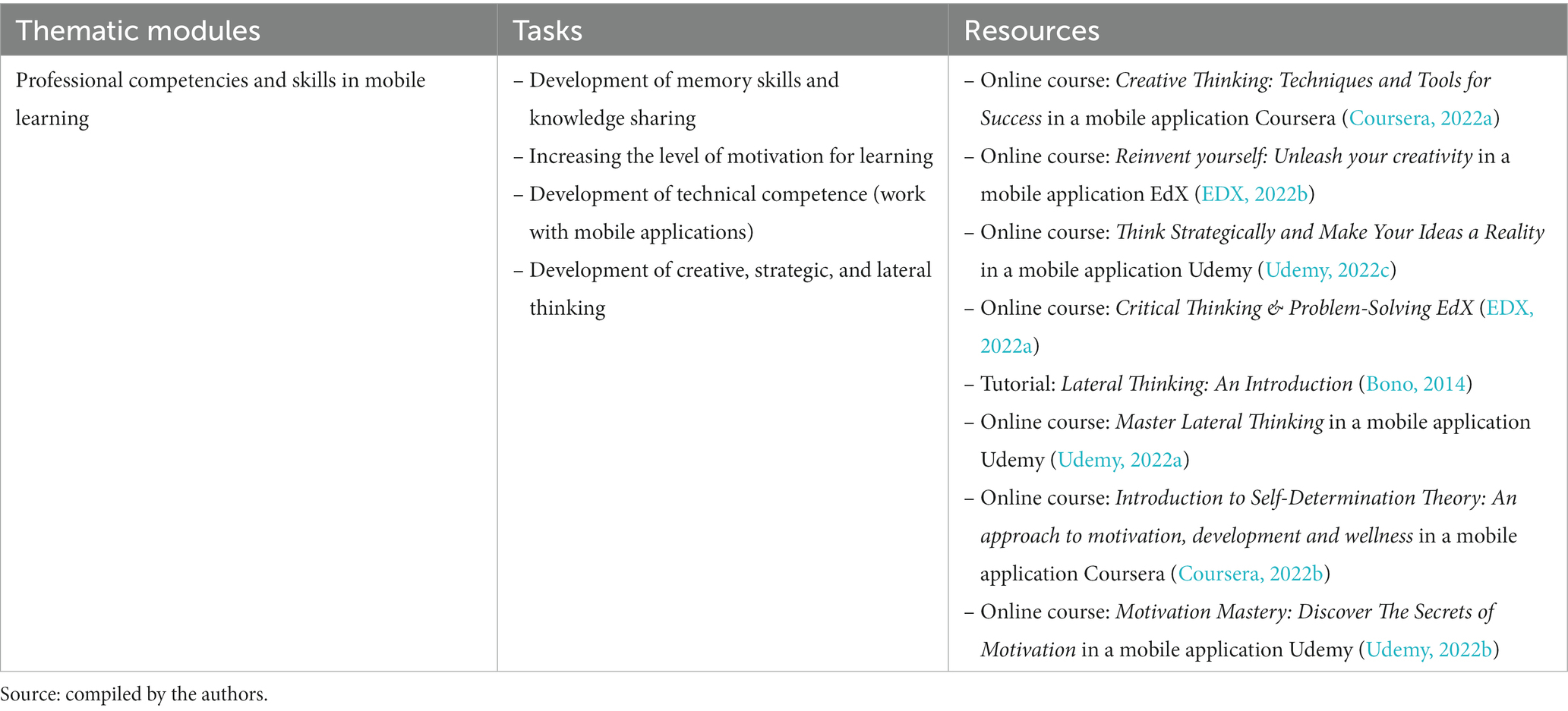- 1Department of Educational Technology, Faculty of Arts and Educational Sciences, Middle East University, Amman, Jordan
- 2Institute of Clinical Morphology and Digital Pathology, I. M. Sechenov First Moscow State Medical University (Sechenov University), Moscow, Russia
- 3Department of Psychology, Kazan Federal University, Elabuga, Russia
This paper aims to analyse the impact of MOOC-based mobile applications on the learning process, memory development, knowledge sharing, and student motivation to study. The study analyzes the existing electronic educational resources of universities. The study design includes two types of surveys (before and after MOOC-based training). The sample population included 662 students of 1–4 courses. A survey conducted before the training showed that 54% of respondents rated their technical competence level as average, 43% rated it as high, and 3% rated it as low. About 83% of respondents noted that mobile applications and online educational courses have affected their academic performance in learning, memory development, and learning ability. The post-training survey results indicated an improvement in the group performance of students who learned with mobile applications on MOOC platforms. The practical significance of the research is determined by the possibility of using the program based on MOOC mobile applications at different faculties of the university. The paper also supplements existing studies with new data on the impact of learning using MOOCs mobile applications on the educational process.
1. Introduction
The development of online learning programmes requires teachers to introduce modern approaches to education, including mobile applications, online platforms and courses (Tawafak et al., 2021; Tuaycharoen, 2021). Mobile applications are effective for teachers to provide students with educational materials based on visual bases to improve student motivation for learning and promote creativity, critical and lateral thinking with an emphasis on the visual structure of theoretical materials (Sharma et al., 2017). The different functions of mobile devices increase the diversity of the educational processes and facilitate effective video communication for online lessons (for example, Zoom, Skype, Google meet, etc.). Consequently, it is possible to access online educational platforms via mobile phones (Leszczyński et al., 2018). Mobile applications are tools that help to optimise the learning process providing accessibility to the independent management of the educational environment and time (Gupta et al., 2021). Due to their interactive nature based on video and audio materials, the advantages of mobile applications are the development of professional competencies and skills, including creativity, technical competence, critical and lateral thinking (Okuboyejo and Koyejo, 2021). Students can access massive open online courses (MOOCs) via mobile applications. They allow learners to follow all the stages of the learning process, memory development and knowledge sharing since all materials are divided into separate lessons related to one topic. The lessons are united into one educational online course (Troussas et al., 2020).
The modern educational process is mainly dominated by elements of digital practices. They help develop memory and improve knowledge exchange not only between a teacher and a student but also between students. At the same time, it is more challenging to maintain control there over this educational communication and students’ attention (Eldh et al., 2020). The need for online lessons increased in distance learning during the pandemic restrictions. The focus has shifted from the traditional classroom to open online courses, which help students to access full-fledged products for different purposes as interactive additions to the main part of the educational programme (Duan, 2022). In addition to the existing online courses, universities are actively developing new programmes using MOOC platforms (Troussas et al., 2013). Russian universities, along with international platforms, organised local online academies with content that was successfully integrated into the educational process.
During the pandemic, the Financial University under the Government of the Russian Federation and the country’s distinguished university professors developed more than 70 learning courses for an open online academy. In 2022, the university introduced numerous programmes for different specialities using the Moodle virtual learning environment. At the Plekhanov Russian University of Economics, more than 200 learning courses were transferred to digital platforms during the pandemic. The MOOCs programmes were developed as optional modules for Bachelors and Masters. They involved a specially designed training programme, available on international educational platforms for students. The most popular educational platforms in Russia are Universarium, Udemy, Eduardo, Stepik, Сoursera, UNIWEB, Open Education, Skillshare, MasterClass, etc.
The advantage of the online MOOC platform is its interactivity focused on the learning process and memory development. The theoretical material is presented through audio and videos, presentations, online lectures or webinars (Yang et al., 2017). In addition, the modules of MOOCs promote open communication between a teacher and course participants in the form of online communication or chatting, which supports the development of communicative competence (Wu, 2021). Courses on the MOOC platform are thematic, and therefore can be applied to both the learning process and personality development (Gameel, 2017).
The present article aims at analysing the impact of mobile applications using MOOCs for the learning process, memory development, knowledge sharing, and ways to increase student motivation to learn. The research objectives are related to the question of whether using mobile applications and online educational platforms improves students’ technical competencies. Moreover, within the framework of the study, a learning programme was developed using MOOCs. The training sessions were conducted based on the programme. The subsequently conducted (second) survey evaluated the effectiveness of training using MOOCs and assessed their impact on the improvement of professional competencies and skills amongst students.
The study’s motivation is related to obtaining new knowledge about the impact of MOOC mobile applications on the learning process, memory development, knowledge sharing, and ways to increase student motivation to learn. This study aims to fill this gap and contribute to the relevant field of knowledge.
2. Literature overview
Massive open online courses (MOOCs) aroused great interest in the field of higher education (Zhu et al., 2018). Such widespread attention is expected, given the roots of MOOCs and similar forms of open education, which are not a new phenomenon. In fact, MOOC development began in 2007, when David Wiley created the first MOOC or Proto MOOC (Al-Rahmi et al., 2019). MOOCs became even more popular in 2012, shortly after the advent of PLENK2010 (Foley et al., 2019), and rapidly spread worldwide. Currently, there are more MOOC courses, including those from well-known MOOC providers such as Udacity, Coursera, and edX (Wahid et al., 2020). They are available around the world. Despite some skepticism about the future of MOOCs, current data shows that the number of MOOCs is still growing.
Since MOOCs are available at any time, learners can choose the best time for learning. This contributes to the development of self-motivation and self-organisation skills (Kevan et al., 2016; Albelbisi et al., 2021). The online courses for selected programmes allow educators to improve the knowledge base and facilitate the learning process and memory development (Mohamad et al., 2021). The motivation for using MOOCs determines the possibility of self-regulation and self-efficacy amongst students. They can choose the courses for learning purposes and complete them independently (Al-Adwan, 2020). The advantage of MOOCs is the use of gamification to combine the elements of interactivity and gaming principles (Krouska et al., 2020). These factors encourage the creative and strategic thinking of students and help them to find a unique solution to a problem (Aparicio et al., 2019).
Israeli researchers admit that the learner-centred approach as part of MOOCs promotes self-management and brings joy to the learning process (Cohen and Baruth, 2017). Researchers in the US proposed the following factors to consider developing the learning programmes: relevance, interest, measurability, accessibility, and scope (Drake et al., 2015). The Udemy mobile application features online courses in different subject areas. Udemy allows students to use the courses both in the learning process and for self-development (Qiu, 2020). Modern online courses are available on the educational online platform in the Coursera mobile application. The key advantage is the availability of different educational modules on different topics in English (Korableva et al., 2019; Ayoub et al., 2020). The SkillShare mobile application promotes creative, strategic, and lateral thinking by visualising educational courses through video recordings (Qi, 2021). The advantage of the mobile application is the simple structure of the lectures. Therefore, they facilitate interaction between students, practice, and interactive presentation of theoretical material (Troussas et al., 2021). In addition, Chinese researchers note that the courses based on the SkillShare applications are predominantly related to art. They include creativity and art issues, particularly photography, drawing, etc. (Xue et al., 2021).
Researchers from Russia and Indonesia suppose that the iSpring Suite mobile application can be used effectively for the development of online courses (Kirillov, 2021; Umam and Sulaikho, 2021). The application allows students to view and buy ready-to-use online courses and create learning courses from scratch. The main advantage is that the proposed courses can be presented in various forms: the textual part only or webinars, video lectures, and presentations. This allows educators to present theoretical material in an interactive format and motivate students to learn. The iSpring Market mobile application is an online store for selling ready-to-use online courses (Kosareva et al., 2021). Online courses can be developed within the framework of online schools, such as the GetCourse and Learme applications. Scientists from Kazakhstan note that the advantage of GetCourse is thematic modules that facilitate the development of online courses. Consequently, the modules may be combined to create a unique online course with lessons on each topic (Nurgul et al., 2021).
The research by Greek scholars focuses on the LearnWorlds mobile application. The key features of the application are its functionality, including the availability of video and audio materials, online editing of downloaded materials (particularly, the function to add text in an interactive format), and the communication functions that provide interaction between teachers and students (Palaigeorgiou et al., 2017). The Mighty Networks application supports communication functions and the development of communicative competencies. Its main features are a wide range of online threads for discussion enabling communication between all participants (Khaleque and Krasteva, 2021). The Pathwright online platform allows educators to create online courses, based on the action-oriented approach. The online courses clearly define the activities that the student is required to perform throughout the course: reading, writing, listening, etc. (Yu et al., 2017; Friedman, 2018).
3. Methods and materials
3.1. Research design
The research uses the experimental method based on surveys. In addition, a modelling approach was used to develop a programme for learning based on MOOCs. A schema describing the research methodology is presented in Figure 1 below.
3.2. Sample
The sample involved 662 students in 1st–4th years of study at the Institute of Information Technologies and Intelligent Systems, Institute of Computational Mathematics and Information Technologies and Engineering Institute of Kazan Federal University.
The main inclusion criteria were the year of study and faculty. At the same time, age and gender were not considered important factors for this study. Students of other specialities were not included in the experiment. The research compared the influence of mobile applications using MOOC for learning, memory development, knowledge sharing and motivation of students to learn.
3.3. Survey
The research consisted of three stages. The first stage involved a survey. The respondents received a Google form with the following questions: Please, rate the level of your technical competence. Do you use mobile applications in the learning process? Are you familiar with massive open online courses (MOOCs)? Are mobile applications and massive open online courses (MOOCs) used in the learning process? Please, rate your motivation for learning. Do mobile applications and online educational courses affect the processes of learning, memory development and knowledge sharing? What online educational platforms do you use in your teaching practices? No time limits were set for the survey.
The second stage of the study involved the programme developed with MOOCs. The students were divided into two groups: one group was trained as part of an educational programme without the use of MOOCs, and the other group learnt the material using the developed learning programme based on massive open online courses. Subsequently, the effectiveness of training was confirmed.
The programme was based on the thematic module Professional competencies and skills in mobile learning, divided into separate lessons. The educators aimed to increase motivation for learning, develop the memory process, knowledge sharing, technical competence (working with mobile applications), creative skills, strategic and lateral thinking (Table 1).
The developed programme requires the university administration to be equipped with computers, headphones, mobile devices, and other technical tools since the experiment was conducted in a distance learning format. The human resources required for the implementation of the training sessions involved instructors familiar with the information on massive open online courses and the key features of their use in the educational process. The training programme included materials on professional skills and competencies, and their development in a mobile application based on MOOCs.
Online courses available through online educational platforms, tutorials, and video and audio recordings were required for the experiment. The developed programme required the use of applications for online lessons: Zoom and Google Meet. The research demands stipulated that the students use a mobile phone with Internet access to download the necessary applications, in namely online courses according to the curriculum guidelines.
In the third stage, a second survey was conducted to analyse the effectiveness of Massive Open Online Courses (MOOCs) in teaching practices. Both groups received a Google form with the following questions: Please, rate the level of your technical competence. Do you use mobile applications and massive open online courses (MOOCs) in the learning process? Please, rate your motivation for learning. Do mobile applications and online educational courses influence learning, memory development, and knowledge sharing? What online educational platforms do you use for training? The procedure was the same as in the first survey conducted before the training.
The questionnaire’s design included the following stages:
• literature analysis in order to form initial ideas for questionnaires;
• drafting questions;
• revision and adjustment of tools if necessary;
• checking tools for reliability.
The questionnaire was tested for reliability using Cronbach’s alpha. The interpretation of Cronbach’s alpha values is as follows: >0.9 excellent; >0.8 good; 0.7 acceptable; 0.6 questionable; and >0.5 unsatisfactory. The cumulative Cronbach’s alpha value for the questionnaire was 0.92. Conclusion: the questionnaire is reliable and can be used for the survey.
3.4. Statistical processing
The responses received from the respondents were processed using the Statistica and Microsoft Excel programmes. The charts based on indicators were visualised separately for each question for all students.
The survey used a multi-stage quota sampling. The sampling error was calculated using the formula:
z – z-indicator, according to the required confidence interval (95%); n – sample size; σ – population standard deviation.
Thus, the sampling error was 0.667, or about 1%. Therefore, the quality of the received data was reliable since there were no unaccounted errors and the accounted errors did not exceed the specified level.
3.5. Research limitations
The main research limitation was a small sample size since the experiment involved 662 students from the 1st to 4th years of study at the Kazan Federal University. Students from other countries were not involved in the experiment.
3.6. Ethical issues
The experiment met all ethical standards and anonymity issues. No confidential information was required or collected from respondents (name, surname or place of residence, etc.). Written consent was obtained from the respondents for the research and data processing. One of the requirements was to indicate the year of study and the faculty in which the respondent was studying at the time of the experiment. All data, their processing, and experiment were orally agreed upon with the ethics committee of the studied educational institution.
4. Results and discussion
Figures 2–7 visualise the responses of a survey conducted before the training based on mobile applications and massive open online courses. Thus, Figure 2 displays the responses to the following survey item: Please, rate the level of your technical competence. The respondents mainly rated their level as average (54%), whilst 43% indicated their level as high and 3% as low.

Figure 2. Answers to the question: please, rate the level of your technical competence. Source: compiled by the authors.
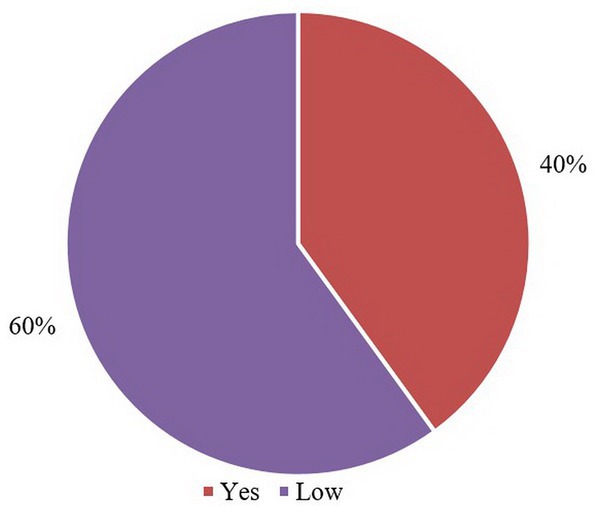
Figure 3. Answers to the question: do you use mobile applications and massive open online courses (MOOCs) in the learning process? Source: compiled by the authors.
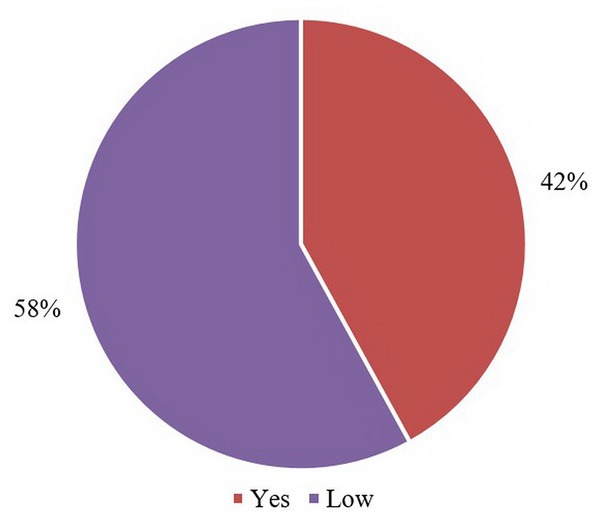
Figure 4. Answers to the question: are you familiar with Massive Open Online Courses (MOOCs)? Source: compiled by the authors.
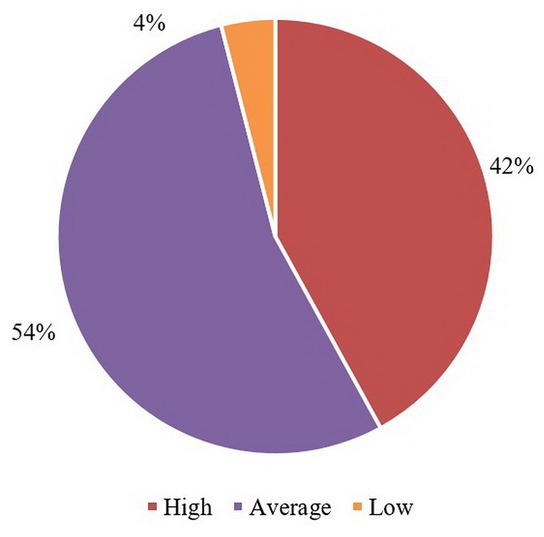
Figure 5. Answers to the question: please, rate your motivation for learning. Source: compiled by the authors.
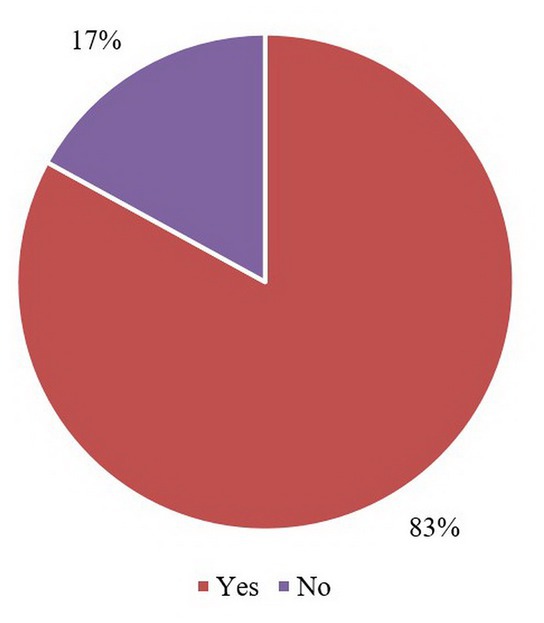
Figure 6. Answers to the question: do mobile applications and online educational courses influence learning, memory development, and knowledge sharing?. Source: compiled by the authors.
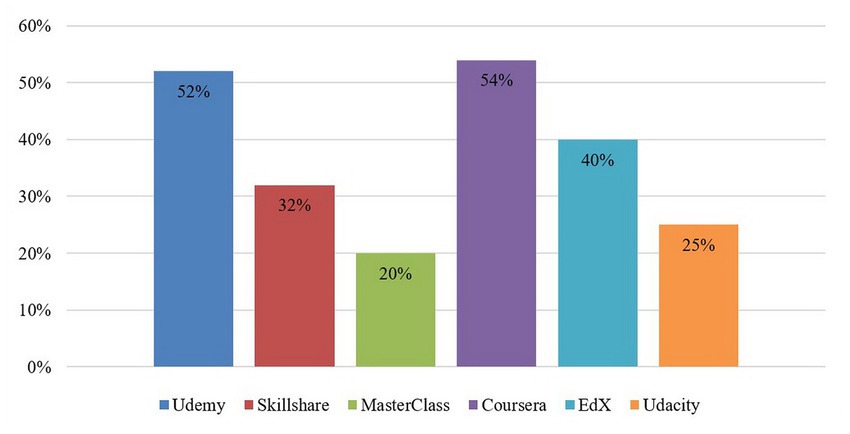
Figure 7. Answers to the question: what online educational platforms do you use for your training purposes?. Source: compiled by the authors.
The majority of students gave a negative answer (60%), and only 40% gave a positive answer to the question Do you use mobile applications in the learning process? It illustrates an insufficient level of modern technologies application in education and the need to introduce them in the educational process (Figure 3).
Figure 4 visualises the answers to the question Are you familiar with massive open online courses (MOOCs)? The answers to the question were as follows: 42% answered Yes, and 58% answered No. However, as noted above, only 40% of students used them in the educational process, which indicated the need not only to inform students about digital platforms but to introduce massive open online courses into the educational process.
When the students were inquired to assess their learning motivation, the majority rated it as average (54%), 42% rated their level of motivation as high and 4% indicated their motivation was low (Figure 5).
Figure 6 shows the answers to the following question: Do mobile applications and online educational courses influence learning, memory development, and knowledge sharing? The majority of students (83%) answered Yes and only 17% answered No to the question. The results confirm the need to implement modern mobile applications and online educational courses into education.
The responses to the question What online educational platforms do you use for your education purposes were as follows: Udemy – 52%, Skillshare – 32%, MasterClass – 20%, Coursera – 54%, EdX – 40%, Udacity – 25% (Figure 7). The highest scores were given to the online platforms Udemy and Coursera.
The second stage included training based on mobile applications using MOOCs. The programme period was 1 month and contained lessons of 45–60 min each. Thus, the teaching methodology was developed using massive open online courses and mobile applications in order to motivate students to use modern technologies in the educational process or training and to develop professional skills and competencies. The training was managed and equipped by the university based on which the experiment took place. The lessons were conducted by educators at each university. The training took place in a remote format, and all participants required a computer or mobile phone with Internet access and downloaded Zoom and Google Meet applications.
The training programme was available on the Moodle online platform intended for distance learning. The students received an access code to the online lessons via the email. Only students and teachers who participated in the first stage of the experiment and registered on the platform had access to the page with the programme and all educational materials. At the same time, teachers were enabled to upload different video and audio materials or links to online courses to the page with the programme. The programme was based on MOOCs; therefore mobile applications such as Coursera, EdX, and Udemy were required for learning. Thus, online courses became the main components of the developed educational programme.
The post-training survey showed improved performance in groups that were trained with MOOCs mobile applications. The answers of respondents who learnt the traditional programme did not change. Consequently, for the survey item Please, rate the development of your technical competence, the indicators amongst the students of the first group did not change (Figure 8).
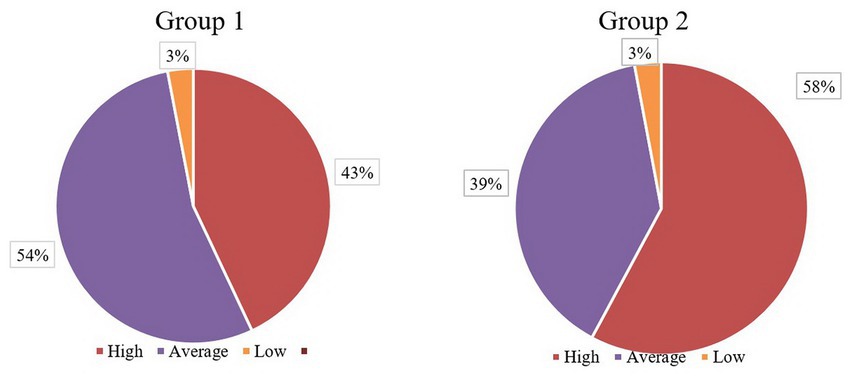
Figure 8. Answers to the question: please, rate the development of your technical competence (Post-training survey). Source: compiled by the authors.
However, the indicators in the second group were distributed as follows: 58% of respondents rated the their level of technical competence as high, an average level of competence was identified for 39, and 3% noted a low level of competence. A comparative analysis showed that after training in different programmes, half of the first group respondents demonstrated the average level (54%). The students in the second group showed better results for a high level (58%) of technical competence. This indicated the effectiveness of training based on the developed programme.
Figure 9 visualises the responses of both groups to the question Are massive open online courses (MOOCs) used in the learning process? A comparative analysis shows that after the detailed analysis of the MOOCs and training according to the proposed programme, the indicators of the second group increased (61% answered Yes and 39% answered No), respectively. The indicators amongst the first group did not change (40% answered Yes, 60% answered No).
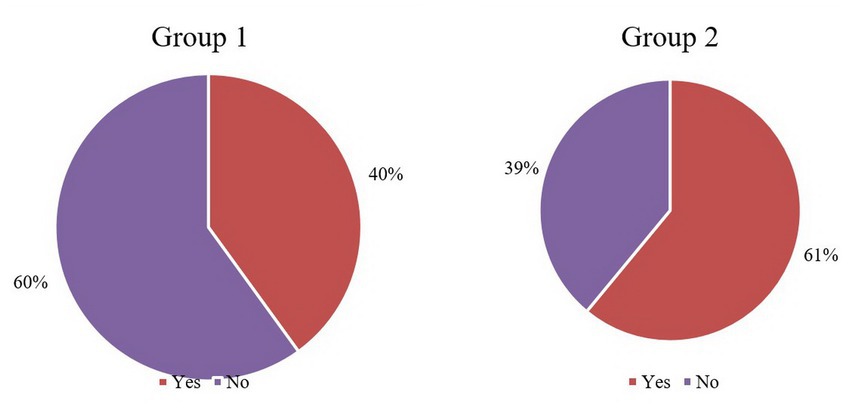
Figure 9. Answers to the question: do you use mobile applications and massive open online courses (MOOCs) in the learning process? (Post-training survey). Source: compiled by the authors.
A comparative analysis of responses to the statement Please, rate your motivation for learning showed an increase in indicators demonstrated by the second group, trained according to the developed programme. The results were as follows: high – 50%, average – 47%, low – 3% (Figure 10). However, the answers of the first group involved in learning without the use of MOOCs remained the same (high – 42%, average – 54%, and low – 4%).

Figure 10. Answers to the question: please, rate your motivation for learning (Post-training survey). Source: compiled by the authors.
The responses to the question Do mobile applications and online educational courses affect the processes of learning, memory development and knowledge sharing? demonstrated that the results in the first group did not change (83% answered Yes, and 17% answered No; Figure 11). The results of the second group, which the developed programme was applied to, changed: 92% answered Yes, and 8% answered No.
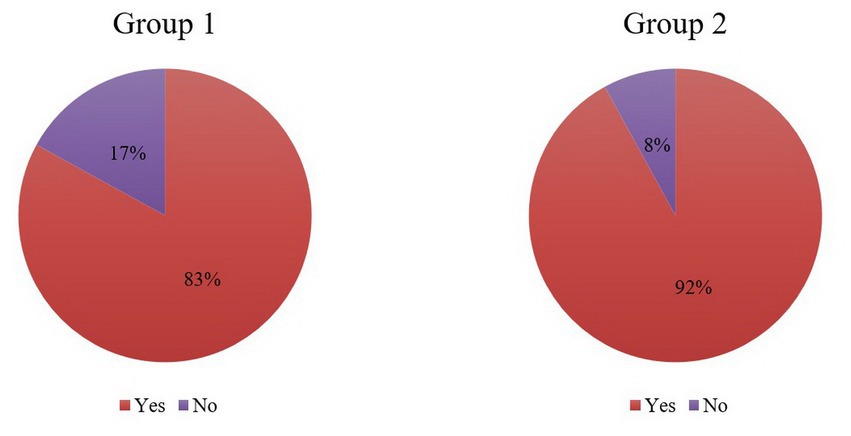
Figure 11. Answers to the question: do mobile applications and online educational courses affect the processes of learning, memory development and knowledge sharing? (Post-training survey). Source: compiled by the authors.
Figure 12 shows the responses to the question What online educational platforms do you use in training? The first group used the following platforms: Udemy – 52%, Skillshare – 32%, MasterClass – 20%, Coursera – 54%, EdX – 40%, and Udacity – 25%. However, the indicators amongst the second group participants increased by 10–15%: Udemy – 62%, Skillshare – 42%, MasterClass – 39%, Coursera – 68%, EdX – 55%, Udacity – 40%. This percentage distribution also indicated the need to implement modern educational online platforms in the educational process.
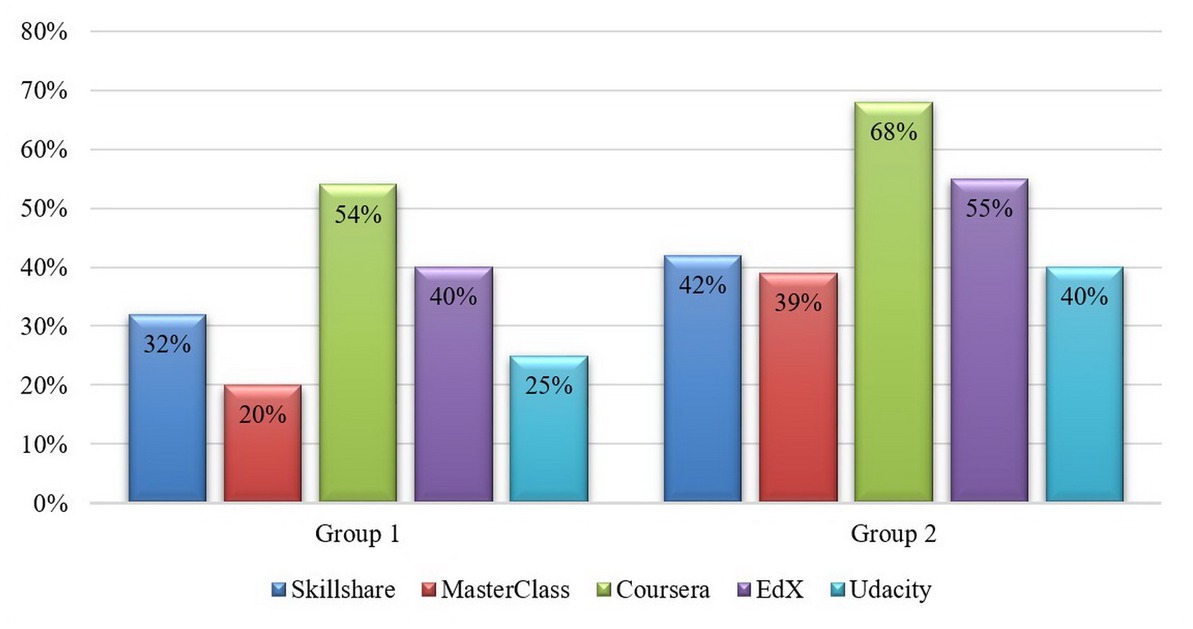
Figure 12. Answers to the question: what online educational platforms do you use for training? (Post-training survey). Source: compiled by the authors.
The results of two surveys conducted before and after MOOC training confirmed the effectiveness of the proposed programme. It was confirmed that mobile applications within the framework of MOOCs can be effectively used not only at Russian universities but also at universities in other countries. Thus, the scientists from Malaysia analysed the academic achievements of students studied MOOC-based programmes. The researchers found that students improved their knowledge using massive open online courses (Al-Rahmi et al., 2019; Albelbisi, 2020). Similar research was carried out in Israel. It identified the correlation between the level of students’ motivation to learn and using MOOCs (Magen-Nagar and Cohen, 2016). Israeli scientists concluded that MOOCs were effective tools that influence positively the self-motivation of students. These results are similar to the results of the present experiment and prove that after learning a programme based on mobile applications within the MOOC, the students’ motivation increased from an average (34%) to a high (45%) level.
Researchers from Spain evaluated satisfaction with learning amongst students enrolled in different programmes (Gutiérrez-Santiuste et al., 2015). The scientists used a similar methodology and conducted a comparative analysis of the learning process using MOOCs and the traditional curriculum. Thus, the conclusions made by Spanish scientists showed a higher level of student satisfaction with learning using MOOCs compared to the psychological and sociological indicators of students who followed the traditional curriculum.
In the present research, the majority of students (92%) whose learning was MOOC-based noted the impact of online courses on learning processes, memory development, and knowledge sharing, whilst the students who followed the traditional curriculum showed lower results (82%). Similar research was conducted in Indonesia: students were also divided into two groups trained with or without MOOC technologies (Sukriono and Sudirman, 2020). As a result of the experiment, students enrolled in the Massive Open Online Course programme were able to improve their academic performance from average to high level or from low to average one.
In Scotland, the use of MOOCs encouraged the investigation of psychological indicators, including the motivational component (Terras and Ramsay, 2015). The main similarity with the present research was that using online courses increased motivation by 10–11%. However, Scottish researchers noted that in addition to the positive impact of MOOC technologies, there may also cause psychological barriers or an inability to control the time spent using digital learning applications.
Researchers from the United States analysed the MOOC-based ways to improve students’ motivation. Their study revealed some psychological barriers (lack of readiness for mobile learning, difficulties in using educational online platforms, insufficient self-regulated learning, lack of time, lack of resources, etc.; Rieber, 2017; Shapiro et al., 2017). However, the American study underlines the significance of knowledge, work, availability of resources, and personal interest as factors of motivation for using MOOCs, whilst these issues were omitted in the present experiment.
The research of scientists from England focused on self-regulated learning, the indicators of which were the highest in MOOC-based learning due to the possibility to control the learning time (Onah and Sinclair, 2017). Researchers from Korea and Austria investigated student engagement in MOOC-based learning (Khalil and Ebner, 2017; Jung and Lee, 2018). The key factors influencing students’ involvement in the educational process were as follows: academic self-efficacy, a teacher’s work and the perception of information, including the assessment of its significance by students.
The research on the role of instructors in the learning process based on MOOCs was conducted by Spanish scientists. They analysed the effectiveness of massive open online courses not only for students but also for instructors. They found that MOOCs increased motivation to use modern technologies and online educational programmes on different educational platforms for teaching (Gil-Jaurena and Domínguez, 2018).
5. Conclusion
The results showed that the use of MOOCs has a positive impact on the educational process and increases the involvement of students in mastering the discipline. The initial survey showed that the average level of technical competence prevailed (54%) for students who were not engaged in the MOOC-based program. At the same time, 43% of them indicated their level as high and 3% as low. Moreover, 60% of respondents noted that they did not use mobile learning applications. About 42% of respondents were familiar with massive open online courses (MOOCs).
More than half of the respondents (54%) rated their motivation for learning as average. The majority of students (83%) noted the influence of mobile applications and online educational courses on learning, memory development, and knowledge sharing. The survey conducted after training showed improvements in performance of the group, which was involved in MOOC-based training on mobile applications. However, the responses of students who followed the traditional programme remained unchanged.
A comparative analysis of the secondary survey results showed an increase in the number of students with high technical competence (58%). It proved the effectiveness of the developed programme. The research significance is related to the possibility of using the programme based on mobile applications and massive open online courses at different university departments. Future research is required to assess the influence of MOOCs on the academic achievements of students from different faculties and analyse students’ motivation for learning.
Data availability statement
The original contributions presented in the study are included in the article/supplementary material, further inquiries can be directed to the corresponding author.
Ethics statement
Ethical approval was not required for the study involving human participants in accordance with the local legislation and institutional requirements. Written informed consent to participate in this study was obtained from the participants.
Author contributions
KA-S conceived and designed the analysis. AB collected the data. OS contributed data or analysis tools and performed the analysis. KA-S and AB wrote the paper. All authors contributed to the article and approved the submitted version.
Acknowledgments
OS has been supported by the Kazan Federal University Strategic Academic Leadership Program. KA-S is grateful to Middle East University, Amman, Jordan, for the financial support granted to cover the publication fee of this research paper.
Conflict of interest
The authors declare that the research was conducted in the absence of any commercial or financial relationships that could be construed as a potential conflict of interest.
Publisher’s note
All claims expressed in this article are solely those of the authors and do not necessarily represent those of their affiliated organizations, or those of the publisher, the editors and the reviewers. Any product that may be evaluated in this article, or claim that may be made by its manufacturer, is not guaranteed or endorsed by the publisher.
References
Al-Adwan, A. S. (2020). Investigating the drivers and barriers to MOOCs adoption: the perspective of TAM. Educ. Inf. Technol. 25, 5771–5795. doi: 10.1007/s10639-020-10250-z
Albelbisi, N. A. (2020). Development and validation of the MOOC success scale (MOOC-SS). Educ. Inf. Technol. 25, 4535–4555. doi: 10.1007/s10639-020-10186-4
Albelbisi, N. A., Al-Adwan, A. S., and Habibi, A. (2021). Self-regulated learning and satisfaction: a key determinants of MOOC success. Educ. Inf. Technol. 26, 3459–3481. doi: 10.1007/s10639-020-10404-z
Al-Rahmi, W., Aldraiweesh, A., Yahaya, N., Kamin, Y. B., and Zeki, A. M. (2019). Massive open online courses (MOOCs): data on higher education. Data Br. 22, 118–125. doi: 10.1016/j.dib.2018.11.139
Aparicio, M., Oliveira, T., Bacao, F., and Painho, M. (2019). Gamification: a key determinant of massive open online course (MOOC) success. Inf. Manag. 56, 39–54. doi: 10.1016/j.im.2018.06.003
Ayoub, A., Amin, R., and Wani, Z. A. (2020). Contribution of developed countries towards MOOCs: exploration and assessment from a representative platform Coursera. Asian Assoc. Open Univ. J. 15, 251–262. doi: 10.1108/AAOUJ-03-2020-0016
Cohen, A., and Baruth, O. (2017). Personality, learning, and satisfaction in fully online academic courses. Comput. Hum. Behav. 72, 1–12. doi: 10.1016/j.chb.2017.02.030
Coursera (2022a). Creative thinking: Techniques and tools for success. Available at: https://ru.coursera.org/learn/creative-thinking-techniques-and-tools-for-success (Retrieved November 15, 2022).
Coursera (2022b). Introduction to self-determination theory: an approach to motivation, development and wellness. Available at: https://ru.coursera.org/learn/self-determination-theory (Accessed November 15, 2022).
Drake, J. R., O'Hara, M., and Seeman, E. (2015). Five principles for MOOC design: with a case study. J. Inf. Technol. Educ. Innov. Pract. 14, 125–143. doi: 10.28945/2250
Duan, T. (2022). A new idea for the optimization of MOOC-based teaching. Educ. Inf. Technol. 27, 3623–3650. doi: 10.1007/s10639-021-10755-1
EDX (2022a). Critical Thinking & Problem-Solving. Available at: https://www.edx.org/course/critical-thinking-problem-solving-3?index=product&queryID=0791a7a7499689665987057591ab7fd9&position=1 (Accessed November 15, 2022).
EDX (2022b). Reinvent yourself: Unleash your creativity. Available at: https://www.edx.org/course/reinvent-yourself-unleash-your-creativity?index=product&queryID=428c62afa57f27f1d219a1488fb0f198&position=2 (Accessed November 15, 2022).
Eldh, A. C., Sverker, A., Bendtsen, P., and Nilsson, E. (2020). Health care professionals’ experience of a digital tool for patient exchange, anamnesis, and triage in primary care: qualitative study. JMIR Hum. Factors 7:e21698. doi: 10.2196/21698
Foley, K., Alturkistani, A., Carter, A., Stenfors, T., Blum, E., Car, J., et al. (2019). Massive open online courses (MOOC) evaluation methods: protocol for a systematic review. JMIR Res. Protoc. 8:e12087. doi: 10.2196/12087
Friedman, J. (2018). “Teaching and online education” in The business of being a writer (University of Chicago Press), 239–244.
Gameel, B. G. (2017). Learner satisfaction with massive open online courses. Am. J. Distance Educ. 31, 98–111. doi: 10.1080/08923647.2017.1300462
Gil-Jaurena, I., and Domínguez, D. (2018). Teachers’ roles in light of massive open online courses (MOOCs): evolution and challenges in higher distance education. Int. Rev. Educ. 64, 197–219. doi: 10.1007/s11159-018-9715-0
Gupta, Y., Khan, F., and Agarwal, S. (2021). Exploring factors influencing mobile learning in higher education – a systematic review. J. Interact. Mob. Technol. 15, 140–157. doi: 10.3991/ijim.v15i12.22503
Gutiérrez-Santiuste, E., Gámiz-Sánchez, V. M., and Gutiérrez-Pérez, J. (2015). MOOC & B-learning: Students' barriers and satisfaction in formal and non-formal learning environments. J. Interact. Online Learn. 13, 88–111.
Jung, Y., and Lee, J. (2018). Learning engagement and persistence in massive open online courses (MOOCS). Comput. Educ. 122, 9–22. doi: 10.1016/j.compedu.2018.02.013
Kevan, J. M., Menchaca, M. P., and Hoffman, E. S. (2016). “Designing MOOCs for success: a student motivation-oriented framework,” in Proceedings of the sixth international conference on Learning Analytics & Knowledge (ACM). 274–278.
Khaleque, N., and Krasteva, G. (2021). Experience technology. How the creative industries help increase the audience engagement at virtual and hybrid events. Aalborg Universitetsforlag. ExCITe-serien.
Khalil, M., and Ebner, M. (2017). Clustering patterns of engagement in massive open online courses (MOOCs): the use of learning analytics to reveal student categories. J. Comput. High. Educ. 29, 114–132. doi: 10.1007/s12528-016-9126-9
Kirillov, Y. (2021). “Using the iSpring suite computer platform in distance learning,” in SHS web of conferences (EDP sciences). (Vol. 106). 03008.
Korableva, O., Durand, T., Kalimullina, O., and Stepanova, I. (2019). “Studying user satisfaction with the MOOC platform interfaces using the example of Coursera and open education platforms,” in ICBDE'19: Proceedings of the 2019 International Conference on Big Data and Education (ACM), 26–30.
Kosareva, L., Demidov, L., Ikonnikova, I., and Shalamovа, O. (2021). iSpring platform for learning Russian as a foreign language. Interact. Learn. Environ. doi: 10.1080/10494820.2021.1913423
Krouska, A., Troussas, C., and Sgouropoulou, C. (2020). “A personalized brain-based quiz game for improving students’ cognitive functions” in Brain function assessment in learning. BFAL 2020. Lecture notes in computer science. eds. C. Frasson, P. Bamidis, and P. Vlamos, vol. 12462 (Cham: Springer), 102–106.
Leszczyński, P., Charuta, A., Łaziuk, B., Gałązkowski, R., Wejnarski, A., Roszak, M., et al. (2018). Multimedia and interactivity in distance learning of resuscitation guidelines: a randomised controlled trial. Interact. Learn. Environ. 26, 151–162. doi: 10.1080/10494820.2017.1337035
Magen-Nagar, N., and Cohen, L. (2016). Learning strategies as a mediator for motivation and a sense of achievement among students who study in MOOCs. Educ. Inf. Technol. 22, 1271–1290. doi: 10.1007/s10639-016-9492-y
Mohamad, N., Othman, A., Ying, T. S., Rajah, N., and Samsudin, N. (2021). The relationship between massive online open courses (MOOCs) content design and students’ performance. J. Interact. Mob. Technol. 15, 4–15. doi: 10.3991/ijim.v15i04.20201
Nurgul, S., Kosherbayeva, A., Chnane-Davin, F., Gulnar, A., and Galina, B. (2021). Formation of oral competence in French (Fle) using educational platforms for students in Kazakhstan: pedagogical and didactic aspects. Rev. Int. Geogr. Educ. Online 11, 4114–4119. doi: 10.48047/rigeo.11.05.292
Okuboyejo, S., and Koyejo, O. (2021). Examining users’ concerns while using mobile learning apps. J. Interact. Mob. Technol. 15, 47–58. doi: 10.3991/ijim.v15i15.22345
Onah, D. F. O., and Sinclair, J. E. (2017). Assessing self-regulation of learning dimensions in a stand-alone MOOC platform. Int. J. Eng. Pedagogy. 7, 4–21. doi: 10.3991/ijep.v7i2.6511
Palaigeorgiou, G., Chloptsidou, I., and Lemonidis, C. (2017). “Computational estimation in the classroom with tablets, interactive selfie video and self-regulated learning” in Interactive Mobile communication, technologies and learning. eds. M. Auer and T. Tsiatsos (Cham: Springer), 860–871.
Qi, Y. (2021). The role of mobile web platforms in the development of critical, strategic and lateral thinking skills of students in distance physical education courses. Think. Ski. Creat. 42:100935. doi: 10.1016/j.tsc.2021.100935
Qiu, R. (2020). “Udemy: blended and e-learning for transforming teaching and learning” in Anticipating and preparing for emerging skills and jobs (Singapore: Springer), 215–220.
Rieber, L. P. (2017). Participation patterns in a massive open online course (MOOC) about statistics. Br. J. Educ. Technol. 48, 1295–1304. doi: 10.1111/bjet.12504
Shapiro, H. B., Lee, C. H., Roth, N. E. W., Li, K., Çetinkaya-Rundel, M., and Canelas, D. A. (2017). Understanding the massive open online course (MOOC) student experience: an examination of attitudes, motivations, and barriers. Comput. Educ. 110, 35–50. doi: 10.1016/j.compedu.2017.03.003
Sharma, S. K., Sarrab, M., and Al-Shihi, H. (2017). Development and validation of mobile learning acceptance measure. Interact. Learn. Environ. 25, 847–858. doi: 10.1080/10494820.2016.1224250
Sukriono, D., and Sudirman, S. (2020). Using massive open online course (MOOC) on Pancasila education increasing students’ score. Int. J. Interact. Mob. Technol. 14, 138–148. doi: 10.3991/ijim.v14i12.15593%0d
Tawafak, R. M., Alfarsi, G. M., Jabbar, J., Malik, S. I., Mathew, R., AlSidiri, A., et al. (2021). Impact of technologies during COVID-19 pandemic for improving behavior intention to use e-learning. J. Interact. Mob. Technol. 15, 184–198. doi: 10.3991/ijim.v15i01.17847
Terras, M. M., and Ramsay, J. (2015). Massive open online courses (MOOCs): insights and challenges from a psychological perspective. Br. J. Educ. Technol. 46, 472–487. doi: 10.1111/bjet.12274
Troussas, C., Krouska, A., and Sgouropoulou, C. (2020). “Towards a reference model to ensure the quality of massive open online courses and e-learning” in Brain function assessment in learning. BFAL 2020. Lecture notes in computer science. eds. C. Frasson, P. Bamidis, and P. Vlamos, vol. 12462 (Cham: Springer), 169–175.
Troussas, C., Krouska, A., and Sgouropoulou, C. (2021). Improving learner-computer interaction through intelligent learning material delivery using instructional design modeling. Entropy 23:668. doi: 10.3390/e23060668
Troussas, C., Virvou, M., and Alepis, E. (2013). Comulang: towards a collaborative e-learning system that supports student group modeling. Springerplus 2:387. doi: 10.1186/2193-1801-2-387
Tuaycharoen, N. (2021). University-wide online learning during COVID-19: From policy to practice. 15:2, 38–54. doi: 10.3991/ijim.v15i02.18143
Udemy (2022a). Master lateral thinking. Available at: https://www.udemy.com/course/master-lateral-thinking/ (Accessed November 15, 2022).
Udemy (2022b). Motivation mastery: Discover the secrets of motivation. Available at: https://www.udemy.com/course/motivation-mastery-business-personal-development-growth-training/ (Accessed November 15, 2022).
Udemy (2022c). Think strategically and make your ideas a reality. Available at: https://www.udemy.com/course/think-strategically-and-make-your-ideas-a-reality/ (Accessed November 15, 2022).
Umam, I., and Sulaikho, S. (2021). Feasibility of android-based iSpring suite learning media in Fiqh subjects. Al-Hayat J. Islamic. Educ. 5, 122–131. doi: 10.35723/ajie.v5i1.174
Wahid, R., Ahmi, A., and Alam, A. F. (2020). Growth and collaboration in massive open online courses: a bibliometric analysis. IRRODL 21, 292–322. doi: 10.19173/irrodl.v21i4.4693
Wu, B. (2021). Influence of MOOC learners' discussion forum social interactions on online reviews of MOOC. Educ. Inf. Technol. 26, 3483–3496. doi: 10.1007/s10639-020-10412-z
Xue, L., Fu, R., Lin, D., Kuok, K., Huang, C., Su, J., et al. (2021). “Exploring the innovative blockchain-based application of online learning system in university” in International conference on web-based learning. eds. W. Zhou and Y. Mu (Cham: Springer), 90–101.
Yang, M., Shao, Z., Liu, Q., and Liu, C. (2017). Understanding the quality factors that influence the continuance intention of students toward participation in MOOCs. Educ. Technol. Res. Dev. 65, 1195–1214. doi: 10.1007/s11423-017-9513-6
Yu, H., Miao, C., Leung, C., and White, T. J. (2017). Towards AI-powered personalization in MOOC learning. NPJ Sci. Learn. 2:15. doi: 10.1038/s41539-017-0016-3
Keywords: distance learning, modern technologies, mobile applications, MOOCs, pedagogical innovations
Citation: Al-Said K, Berestova A and Shterts O (2023) Learning processes, memory development, and knowledge sharing via mobile applications using MOOCs. Front. Educ. 8:1113584. doi: 10.3389/feduc.2023.1113584
Edited by:
Shashidhar Venkatesh Murthy, James Cook University, AustraliaReviewed by:
Christos Troussas, University of West Attica, GreeceNoraffandy Yahaya, Universiti Teknologi Malaysia, Malaysia
Dimitrios Vlachopoulos, Erasmus University Rotterdam, Netherlands
Copyright © 2023 Al-Said, Berestova and Shterts. This is an open-access article distributed under the terms of the Creative Commons Attribution License (CC BY). The use, distribution or reproduction in other forums is permitted, provided the original author(s) and the copyright owner(s) are credited and that the original publication in this journal is cited, in accordance with accepted academic practice. No use, distribution or reproduction is permitted which does not comply with these terms.
*Correspondence: Khaleel Al-Said, YWxzYWlka2hhbGVlbDRAZ21haWwuY29t
 Khaleel Al-Said
Khaleel Al-Said Anna Berestova2
Anna Berestova2